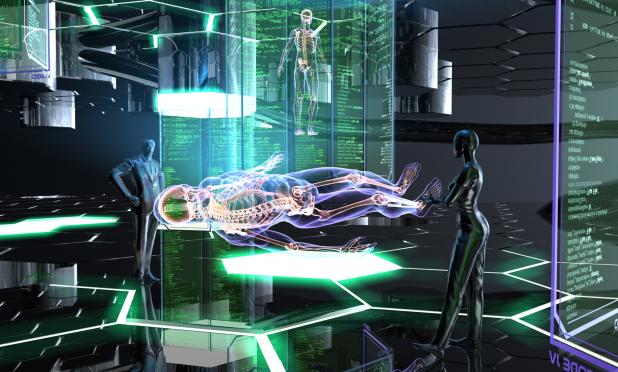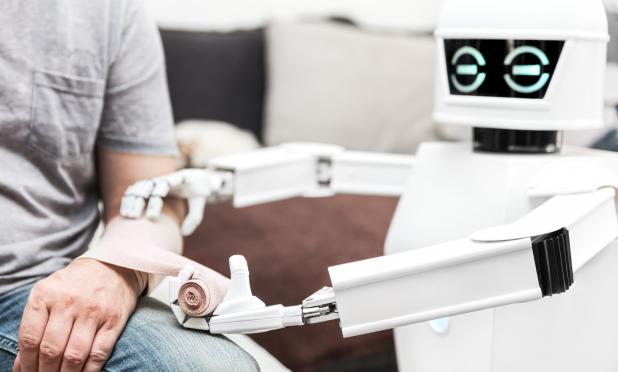
/
SPONSORED
Experts: chatbots need work to become better listeners
Chatbots may significantly lower health systems' operating costs, says a team of doctors, but evaluation and research are critical to keep the trust of both patients and healthcare workers.

/
SPONSORED
Partnership targets voice AI as possible COVID-19 diagnostic tool
Beyond COVID-19, researchers say this is the kind of data analytics that could enhance healthcare for all kinds of diseases with clues hiding in people’s voices.

/
SPONSORED
Researchers test AI algorithm for cervical cancer screening
The team says their findings serve as an important example for introducing digital pathology and deep learning into clinical practice, and their approach could substantially improve cervical cancer screening.

/
SPONSORED
Cleveland healthcare org partners with GE on AI-driven x-ray tool
The tool is the industry’s first collection of AI algorithms embedded on a mobile X-ray device and was built in collaboration with UC San Francisco.

/
SPONSORED
How “salutogenesis” could be the real future of AI in healthcare
By tapping AI to help us understand what makes us stressed and sick, says one stakeholder, we can empower people to prevent potential sickness from occurring in the first place.

/
SPONSORED
AARP, Howard University announce tech-based partnership to address age-based health disparities
Among other things, the projects will enable proactive voice-first technology that uses facial recognition to remind individuals to take their medication.

/
SPONSORED
New AI model offers promise of earlier pancreatic cancer detection
According to experts, using AI on EHRs to highlight patients at higher risk could reveal who should receive more in-depth screening.

/
SPONSORED
How AI is key to the future of pharma
Although some remain skeptical about the potential of AI, it’s clear to see that the pharmaceutical industry is particularly poised to improve and thrive through its usage.

/
SPONSORED
Oncologists turn to AI for patient care insights
Oncology practices of all sizes are starting to use AI to help identify patients at risk of relapse or adverse effects (AEs) and to assist in making clinical decisions on care.


